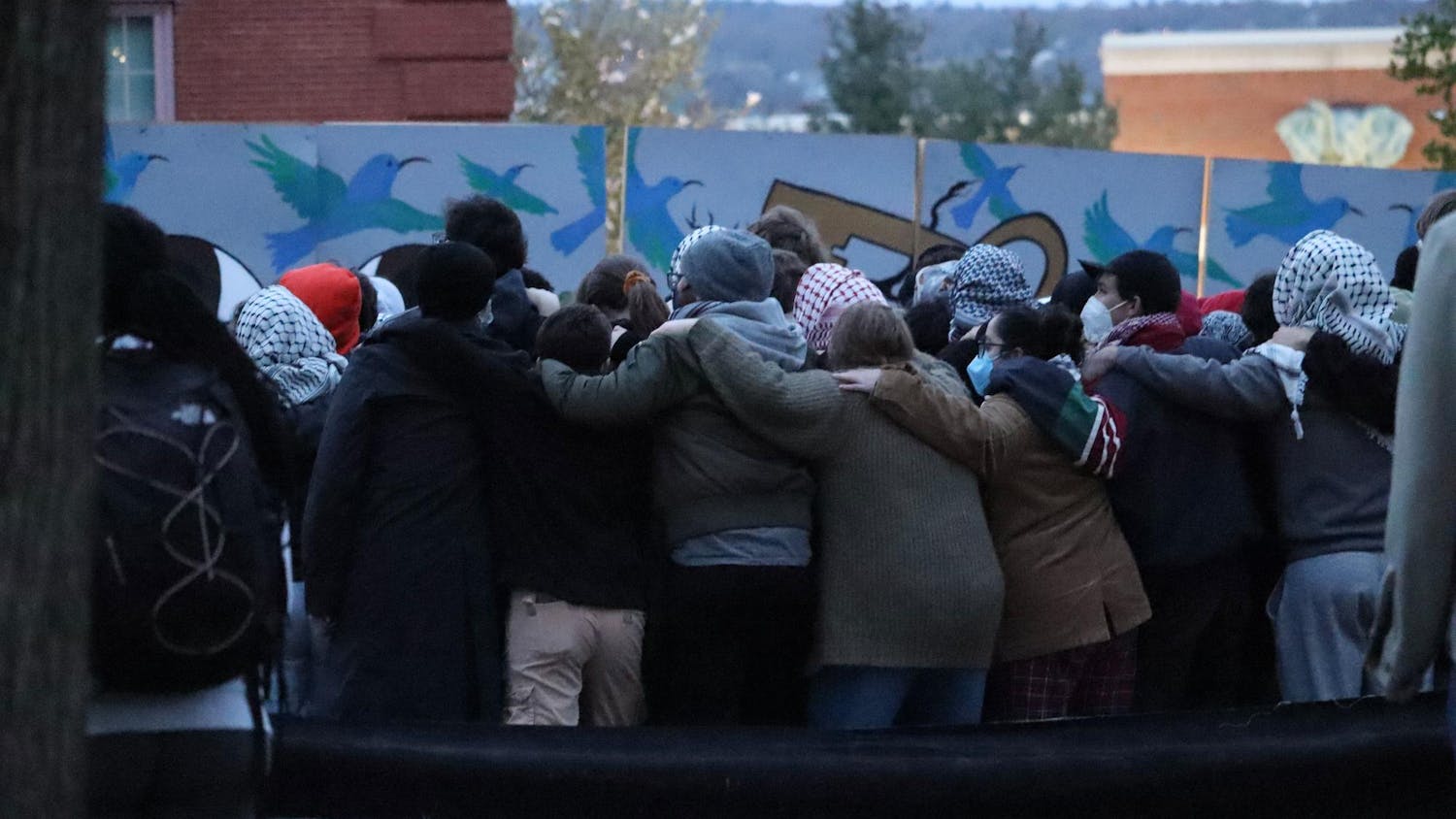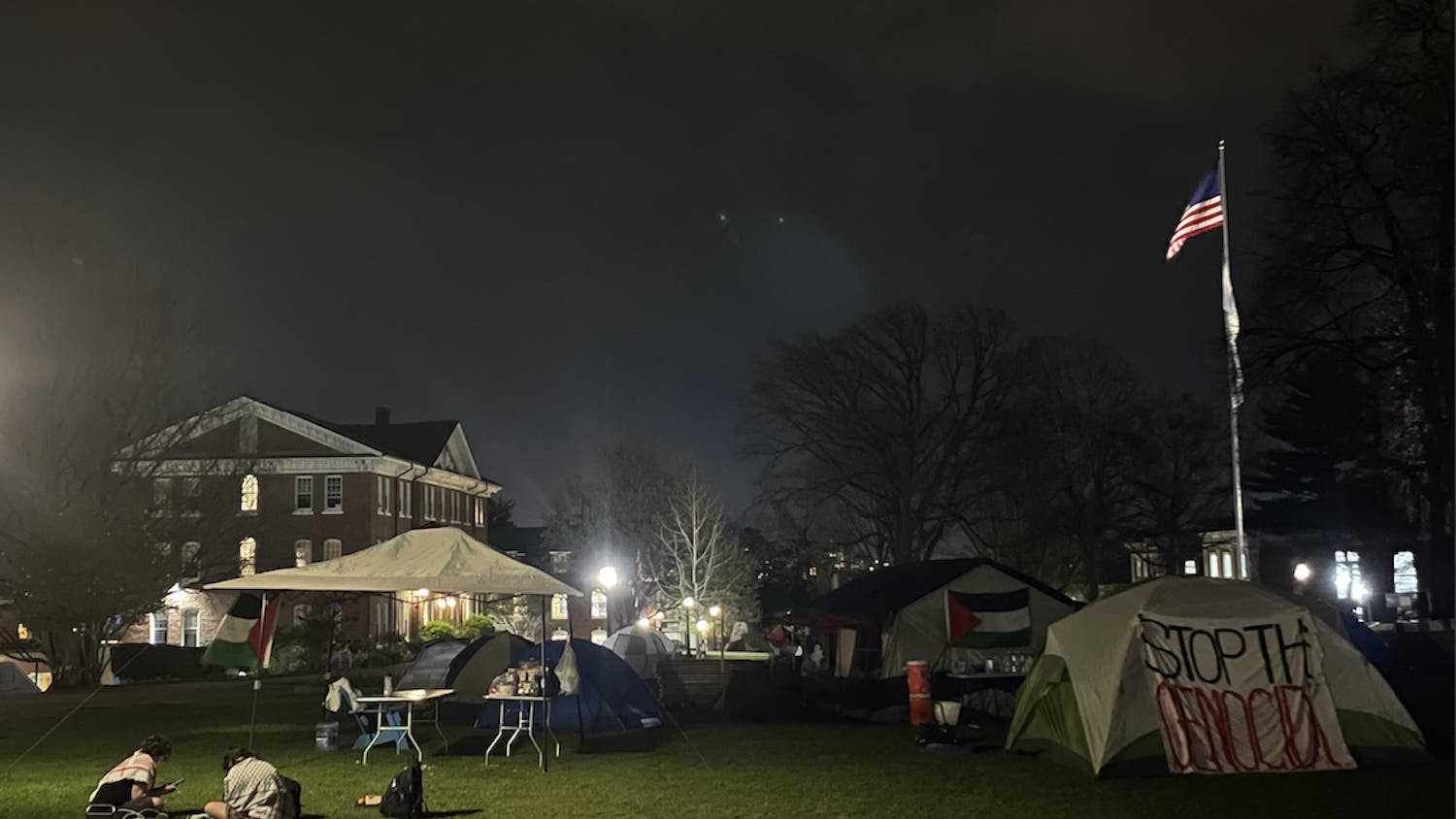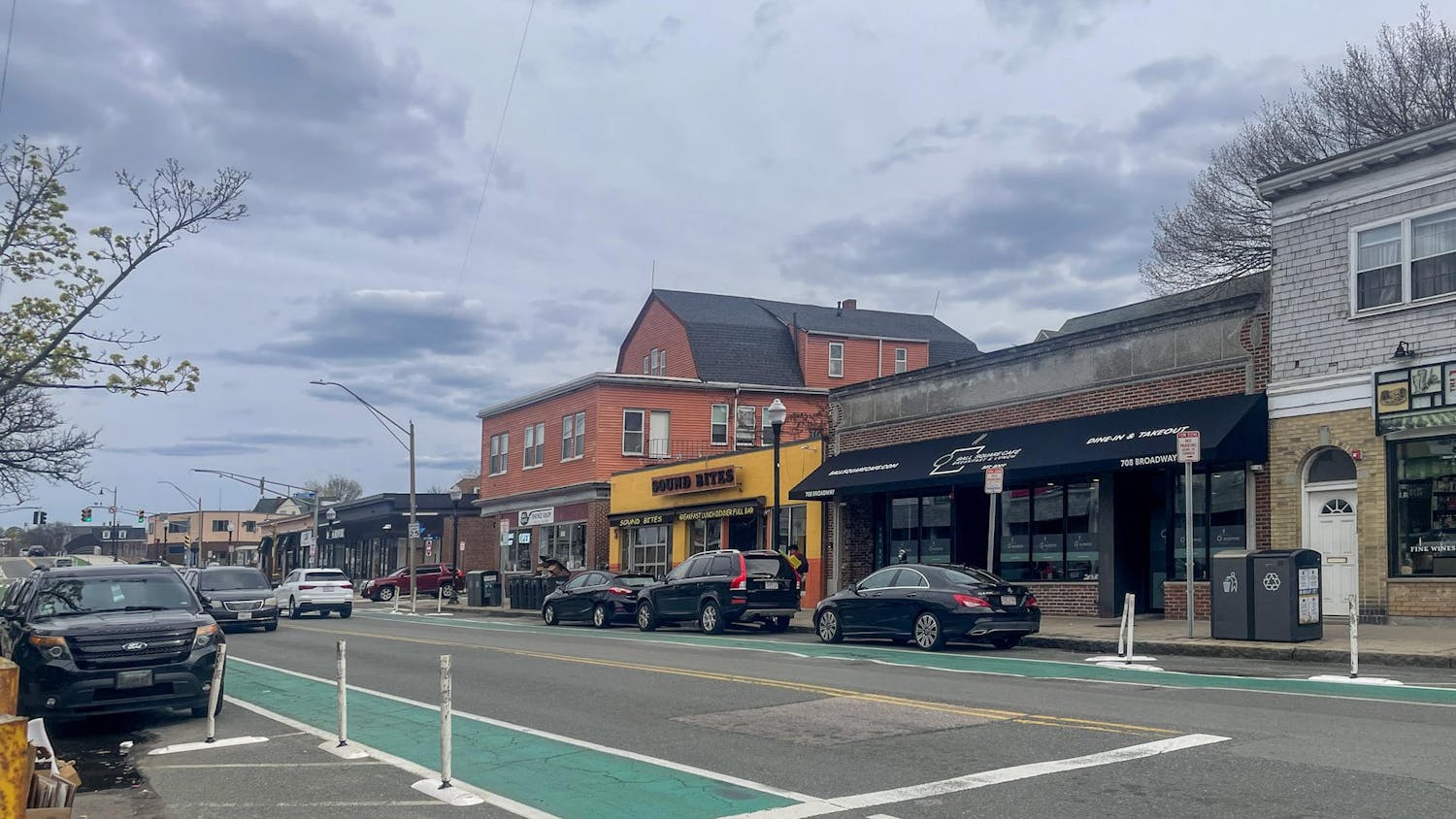Students and administrators, including the Tufts Community Union (TCU) Senate and University President Anthony Monaco, responded Thursday to the appearance of posters linked to white nationalism around Tufts' Medford/Somerville campus on late Wednesday night.
Posters bearing the phrase "It’s okay to be white" were affixed to get-out-the-vote signs that JumboVote, a nonpartisan initiative to increase voter participation among Tufts students, and the Jonathan M. Tisch College of Civic Life had erected earlier this week.
Monaco responded to the incident with dismay and resolve Thursday evening in an email to the Tufts community that addressed recent hate-fueled incidents around the country.
"We have watched with great sadness as incidents of hate and division have taken place across our nation in recent months—most recently in Pittsburgh, where Jewish worshipers were killed by an anti-Semitic gunman," Monaco wrote. "These incidents remind us of the need for continued vigilance against hatred and those who espouse it."
Monaco expressed appreciation for the student who reported the posters to the Tufts University Police Department (TUPD), adding that TUPD is investigating the incident.
"It is unknown at this time whether the events on our campus were perpetrated by someone in the Tufts community," he said.
Monaco also acknowledged similar incidents that occurred on other college campuses across the country Wednesday night.
The Daily has confirmed that identical posters appeared on the campuses of at least nine American universities, including Harvard University, Duke University and the University of Delaware, as well as in Fort Worth, Tx., various Canadiancities and at the University of Southampton in the United Kingdom.
Monaco's statement took a hard line against hatred and bigotry in all of its forms and promised that harassment and threats against members of the Tufts community will not be tolerated.
"We are committed to ensuring that everyone here – students, faculty, and staff — can learn, teach, and work in safety," Monaco wrote. "We will not allow those intent on division to demean and diminish any member of our community."
Monaco also characterized the placement of the posters — of which at least eight were located and removed, according to TUPD — as an attempt to deter efforts at increasing voter participation at Tufts. He emphasized the university's commitment to promoting respectful political discourse while decrying its more pernicious forms.
"We respect and encourage political discourse and civic engagement at Tufts, but today’s action clearly had a different purpose – to foster discord and fear during a major national election," Monaco wrote.
Tisch College Dean Alan Solomont expressed a similar sentiment in an interview with the Daily.
"I think that one could interpret this messaging from the alt-right as an effort to actually discourage students from participating," Solomont said. "But I have enough confidence in Tufts students to know that they're not going to be dissuaded."
Solomont remained hopeful that the incident could embolden students to participate in the election.
"The response to this, I hope and believe, will be not to be intimidated but to actually get out there and participate," he said.
Solomont noted that groups all across the political spectrum, from liberal to conservative, have had times when their presence on campus resulted in "expressions of hate" during his five decades as a member of the Tufts community.
However, Solomont also made clear that the current political environment of foundering discourse, lost civility and open animosity is a reflection of the Trump administration's divisive governing strategy.
"The current leadership gives license to people who are hateful to express that [hatred]," Solomont said. "When they hear the President of the United States speak the way he does, I certainly don’t think that discourages people."
Solomont added that the best thing the Tufts community can do is to move past recent hateful incidents.
"It’s the act of a handful of people who, when they do something like this, have a loud megaphone," Solomont said. "But I think we should reject it, repudiate it, move on and try to encourage this community to participate in democracy."
Student leaders on campus also spoke out in the wake of Wednesday night's vandalism. The TCU Senate Executive Board released a statement on the Senate's Facebook page Thursday morning decrying the incident.
"[We] were shocked to learn that posters with language linked to white supremacist hate groups were found on our campus last night," the Executive Board wrote. "We want to take this moment to reaffirm our support for the members of our community targeted by white supremacist hatred, especially our students of color, Jewish students, Muslim students, and LGBTQ+ students."
The Executive Board unequivocally rejected the white nationalist movements to which the posters have been linked.
"White supremacy has no place on our campus. It is more important now than ever to stand firmly against this hatred and bigotry while reaffirming that the Tufts community is strong precisely because of its diversity," the Executive Board wrote.
Mary Pat McMahon, dean of student affairs, and Robert Mack, associate provost and chief diversity officer, wrote in an email late Thursday that the university will provide students with an opportunity for reflection and support Friday 11 a.m. to 12:30 p.m. in the Metcalf Hall Common Room.
"We know that this act of bigotry and hate, and its resonance with recent national events, may have a significant impact on many students, as well as faculty and staff," they wrote. "In an effort to provide students with an opportunity to connect, find support, and reflect on possible next steps for our campus community, we are hosting an informal gathering [Friday]."
Tufts community responds to 'It's okay to be white' posters

University President Anthony Monaco's Nov. 1 message to the Tufts community, addressing Saturday’s anti-Semitic violence in Pittsburgh and Wednesday night’s white nationalist-linked defacement of campus get-out-the-vote signs, is pictured.





